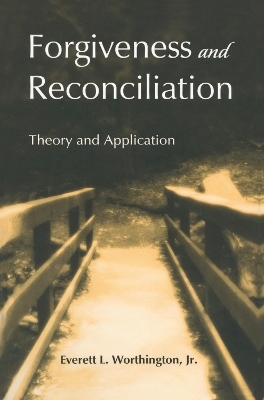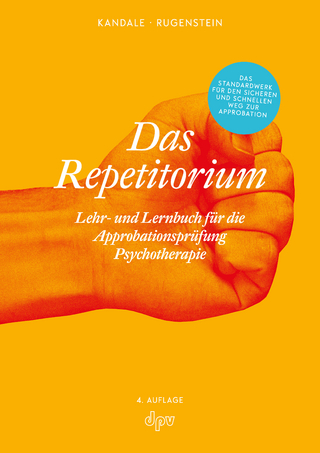
Forgiveness and Reconciliation
Routledge (Verlag)
978-0-415-76349-3 (ISBN)
Dr. Worthington hopes that this theory will inform scientific research and improve intervention strategies. Showing that forgiveness transforms personality, Worthington describes ways a clinician can promote (but not force) forgiveness of others and self. He provides research-based theory and applications and discusses the role of emotion and specific personality traits as related to forgiveness. Forgiveness and reconciliation might not be cures, but, as Worthington shows, they are tools for transforming both the self and the world.
Everett L. Worthington, Jr., Ph.D., is Professor of the Department of Psychology at Virginia Commonwealth University. Dr. Worthington was founding editor of Marriage and Family: A Christian Journal, and serves on other editorial boards of professional journals. He was founding Executive Director and Treasurer of A Campaign for Forgiveness Research, a not-for-profit organization devoted to supporting research into forgiveness (www.forgiving.org), which led to being editor of Handbook of Forgiveness (Brunner-Routledge, 2005). He is a leader in the field of forgiveness research, teaching, publishing, and dissemination.
Preface. Acknowledgments. Introduction. Part I: A Stress-and-Coping Theory of Forgiveness and Relevant Evidence. Models of Forgiveness. A Biopsychosocial Stress-and-Coping Theory of Forgiveness. Evidence That Unforgiveness is a Stress Reaction. Emotion in the Stress-and-Coping Theory of Forgiveness. Evidence Supporting the Emotional Replacement Hypothesis. Part II: Personality Traits of Forgivers and Nonforgivers. Forgiveness and the Big Five Personality Traits. Dispositions Related to Unforgiveness and Forgiveness. Personality can be Changed. Part III: Clinical Applications to Promote Forgiveness and Reconciliation. A General Approach to Psychotherapy. Intervening Specifically to Promote Forgiveness. Intervening to Promote Forgiveness of Self. Intervening to Promote Reconciliation. Research Support for Helping People REACH Forgiveness. Promoting Forgiveness and Reconciliation Within Society. Conclusion: Forgiveness is not a Panacea. Appendix: What is Forgiveness? References. Index.
| Erscheint lt. Verlag | 12.9.2014 |
|---|---|
| Zusatzinfo | 6 Tables, black and white; 6 Line drawings, black and white |
| Verlagsort | London |
| Sprache | englisch |
| Maße | 152 x 229 mm |
| Gewicht | 453 g |
| Themenwelt | Geisteswissenschaften ► Psychologie ► Familien- / Systemische Therapie |
| Medizin / Pharmazie ► Medizinische Fachgebiete ► Psychiatrie / Psychotherapie | |
| Sozialwissenschaften ► Soziologie | |
| ISBN-10 | 0-415-76349-5 / 0415763495 |
| ISBN-13 | 978-0-415-76349-3 / 9780415763493 |
| Zustand | Neuware |
| Haben Sie eine Frage zum Produkt? |
aus dem Bereich


